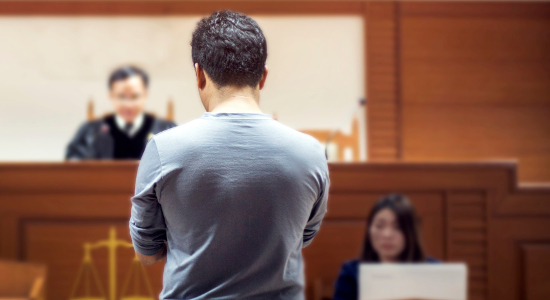
July 17, 2018 – Terrance Egerson, accused of violating domestic abuse injunctions and stalking, stated that he wanted to represent himself after his lawyer withdrew. Recently, a state appeals court ruled that he did not clearly invoke a right of self-representation.
During the withdrawal hearing, the judge warned Egerson that he may not get a better lawyer than his current one, and discharging lawyers may lead to a waiver of counsel.
After his lawyer withdrew, the issue of discovery came up. Egerson said the state had not turned over everything, but the judge stopped him and said he wasn’t the lawyer of record. At that point, Egerson requested to represent himself with co-counsel.
The judge declined. Egerson starting complaining about the assistant district attorney and all the charges against him and asked to represent himself without co-counsel.
The judge told him to think about it, and the hearing ended shortly after. New counsel was ultimately assigned, and Egerson did not mention proceeding pro se again.
After a jury trial, he was sentenced to 12 years in prison with 11 years of extended supervision. He filed a post-conviction motion, seeking a new trial on the grounds that the circuit court violated his right to self-representation by denying his request.
The circuit court denied the motion. And in State v. Egerson, 2017AP797-CR (July 17, 2018), a three-judge panel for the District I Appeals Court affirmed that decision, concluding that Egerson’s self-representation request was not clear and unequivocal.
The appeals court noted that a defendant must “clearly and unequivocally” invoke the right of self-representation, at which point the court engages the defendant in a colloquy to ensure the defendant has voluntarily waived a right to counsel and is competent.
“There are no cases in Wisconsin that define when a defendant invokes this right and triggers that requirement of the Klessig colloquy,” noted Judge William Brash III.
The state argued that Egerson did not invoke the right but was merely voicing frustration in the moment of the hearing, regarding discovery and alleged bias against him.
The appeals court noted that the hearing was “contentious” and after the judge shut him down, Egerson did not raise the topic of self-representation again during the case.
“From those facts, we cannot conclude that Egerson’s statements were a clear and unequivocal invocation of his right to self-representation,” Judge Brash wrote.
The panel said the case fell in line with other cases, including one decided by the Wisconsin Supreme Court, in which a defendant is “disgruntled with his attorney and thus expresses an opinion that he could do a better job representing himself.”
“These ‘occasional musings on the benefits of self-representation’ do not rise to the level of invoking the right of self-representation,” Judge Brash wrote.
